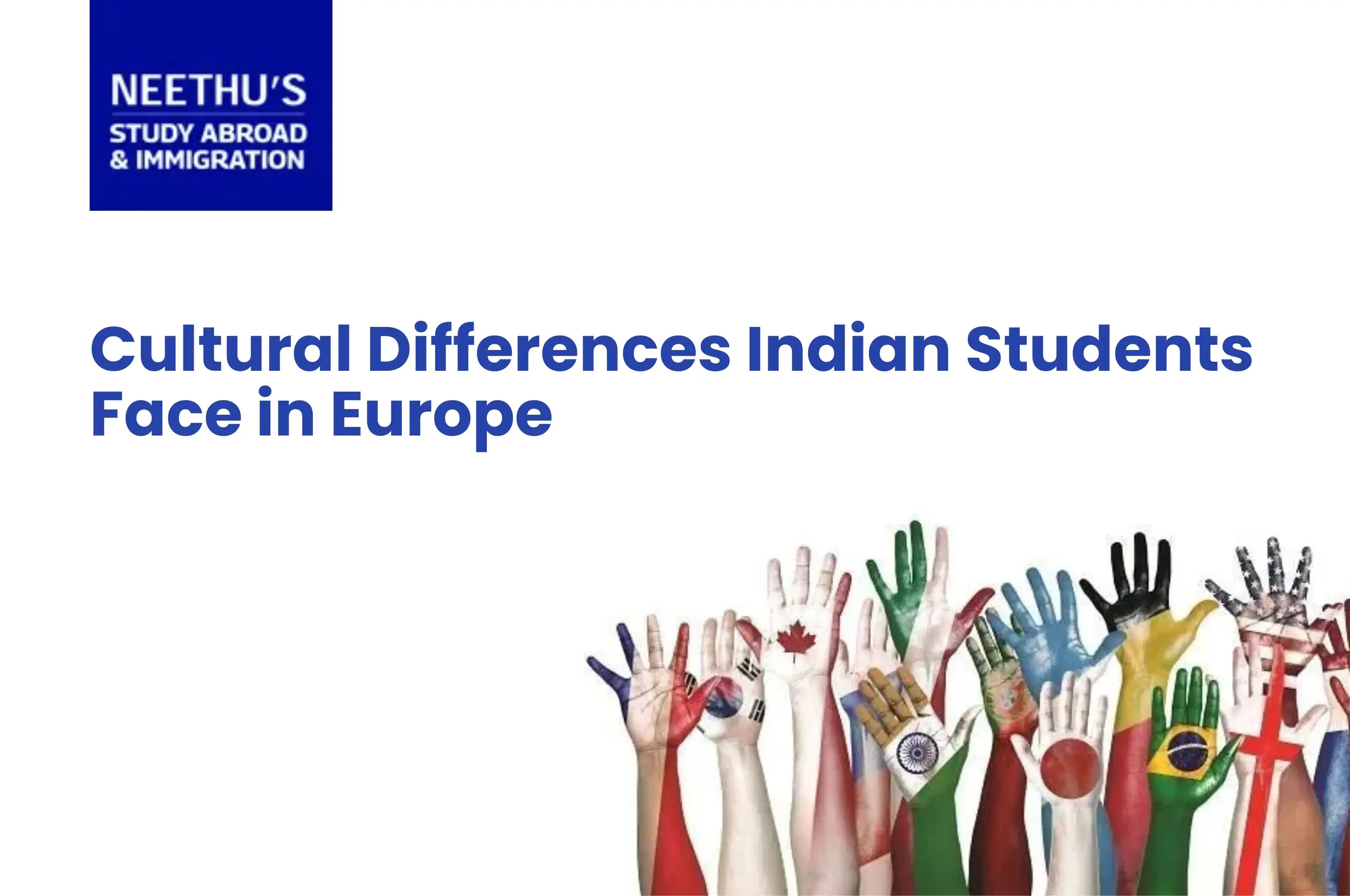How to Learn French for Studying in Europe as an Indian

Studying in Europe is the dream of most Indian students, owing to its world-renowned universities, low fees, and cultural diversity. Although most European institutions offer English-taught programs, a good understanding of the host country's language, especially French, can make all the difference. If you are traveling to France, Belgium, Switzerland, or Luxembourg, studying French will help you fit in perfectly, excel academically, and get the most out of your time. This guide aims to help Indian students learn French to achieve study abroad success and offer effective advice and techniques to start Europe study preparation with confidence.
Why Indian Students Should Learn French Before Studying in Europe
For Indian students aiming for countries in which French is the native language, studying the language is not just an added plus—it's usually compulsory. Here's why it makes sense for Indian students to study French:
Access to academics: Even if there are English programs, many undergraduate and postgraduate programs—especially at state universities are taught in French.
Better Career Opportunities: French language skills open opportunities for internships, part-time jobs, and full-time jobs upon graduation.
Better Visa Profile: Some countries favor students who have gained proficiency in the local language, boosting your visa chances.
Easier Daily Life: Knowledge and skills in French may make daily activities like shopping, travel, banking, and healthcare easier.
Better Integration into the Culture: Language makes it easier to bridge cultural differences, thus enabling you to network and make friends.
Scholarship Access: Some French government and university scholarships require or prefer that students have some level of French.
Generally, learning French early in your European study planning is an investment in your own life and education abroad.
Where Is French Needed in Europe for Studies?
French is spoken extensively across some of the most desirable countries in Europe for foreign students. There are the following top destinations where French language skills can come in handy:
France: The most straightforward choice. French is used as the primary medium of instruction in a majority of the public universities. A few postgraduate courses are bilingual or French only.
Belgium: French is the official language in the southern part of Belgium (Wallonia). Universities such as Université Catholique de Louvain teach in French.
Switzerland: French is among Switzerland's four national languages, spoken frequently in Geneva, Lausanne, and Neuchâtel.
Luxembourg: French is spoken a great deal in education and administration in this trilingual country.
Canada (Quebec): Although outside Europe, Quebec is a French-speaking province where Indian students also go for higher studies.
So, in case you're set to study in France, Belgium, or any other such locations, learning French is not a choice—it's mandatory.
How to Learn French from India
Due to online accessibility, now you can start learning French from your home. Follow this step-by-step process to begin:
1. Select a Learning Platform
Begin with beginner-friendly websites. Some trusted options are:
Alliance Française: Provides formal courses that match DELF exams.
Coursera & EdX: University courses, a few of which are free.
Duolingo & Babbel: Interactive phone apps perfect for beginners.
2. Get into a Coaching Institute
If you wish for classroom sessions, you can join local institutes. Alliance Française has branches in big Indian cities and is well-regarded.
3. Watch and Listen to French Material
Start watching French programmes with English subtitles.
Listen to French podcasts or audiobooks on Spotify or Audible.
4. Practice with Native Speakers
Use language exchange apps like Tandem, HelloTalk, or Speaky.
Participate in online French-speaking groups or communities.
Consistency is key—allocate at least 30–45 minutes daily to study and revise.
French Language Proficiency Exams for Students
If you’re planning to study in French-speaking universities, taking a French language proficiency exam boosts your academic profile. Here are the most recognized certifications:
DELF (Diplôme d'Études en Langue Française)
Levels are A1 to B2.
Accepted by the majority of French universities.
DALF (Diplôme Approfondi de Langue Française)
C1 and C2 levels are advanced.
Appropriate for students seeking postgraduate and doctoral studies.
TEF (Test d'Évaluation de Français) & TCF (Test de Connaissance du Français)
SLFP is usually demanded in immigration and higher studies.
Most universities require a B1 or B2 level for admission. Start preparing at least 6 to 12 months beforehand with French courses online or from a certified institute.
Tips to Incorporate French into Your Everyday Life
Learning a language is best when it's embedded in your lifestyle. Here are methods to soak up French without ever having to leave India:
Set the language of your phone or browser to French
Develop flashcards for commonly used words
Describe things around your room in French
Keep your grocery list or diary written in French
Subscribe to French YouTubers and Instagram accounts
Speak while standing in front of a mirror
How Long It Takes to Learn French
Here's a rough idea on the time line to learn french:
Basic Level (A1–A2): 3–6 months
Intermediate Level (B1): 6–9 months
Upper Intermediate (B2): 9–12 months
For study purposes, most universities in France require B1 or B2. The 80/20 rule suggests that you’ll get 80% of the value from 20% of the effort—so focus on speaking and listening first. Start early and be consistent for faster progress.
Additional Preparation Tips
Besides language, ensure the rest of your Europe study preparation is on track:
Research universities and courses early
Check application deadlines and admission requirements
Prepare robust SOP and LORs
Secure scholarships and grants
Purchase health and travel insurance
Open a foreign bank account or forex card
Learn about the local laws and the rights of students in your country of destination
Combining these steps with French language learning will make foreign study easy.
Conclusion
Learning French is not just a practical but an empowering step for Indian students intending to study in France or other French-speaking parts of Europe. It enhances your academic preparedness, deepens cultural assimilation, and greatly enhances your professional prospects. Being able to choose from a range of French courses online, mobile applications, and coaching centers in India, you can begin your language learning today. Incorporate French into your daily life, be regular, and prepare hard for examinations. Your European study aspirations are only a few words away!
Frequently Asked Questions
Is French hard for Indians to learn?
No, French is not difficult for Indians because of numerous English-derived vocabulary roots.
What is the 80 20 rule in French?
Dedicate 80% towards vocabulary and day-to-day usage and 20% towards grammar to learn effectively.
How much time will it take to learn French for Indians?
With consistent learning, Indian students can become intermediate-level in 6 to 12 months.
Can I learn French in 3 months?
You can achieve basic conversational fluency in 3 months with serious day-to-day practice.






















_03-12-2025_01-17-26%20PM.webp&w=3840&q=75)
_02-12-2025_03-07-49%20PM.webp&w=3840&q=75)

_27-11-2025_04-06-24%20PM.webp&w=3840&q=75)
_25-11-2025_04-38-18%20PM.webp&w=3840&q=75)
_24-11-2025_03-20-26%20PM.webp&w=3840&q=75)
_22-11-2025_12-44-47%20PM.webp&w=3840&q=75)
_21-11-2025_04-17-47%20PM.webp&w=3840&q=75)
_20-11-2025_03-55-26%20PM.webp&w=3840&q=75)
_18-11-2025_04-00-40%20PM.webp&w=3840&q=75)
_15-11-2025_10-48-43%20AM.webp&w=3840&q=75)
%20(1)_14-11-2025_03-52-25%20PM.webp&w=3840&q=75)
_13-11-2025_03-02-38%20PM.webp&w=3840&q=75)
_08-11-2025_04-15-36%20PM.webp&w=3840&q=75)
_05-11-2025_04-01-50%20PM.webp&w=3840&q=75)
_05-11-2025_03-46-26%20PM.webp&w=3840&q=75)
_03-11-2025_03-31-09%20PM.webp&w=3840&q=75)
_04-11-2025_.webp&w=3840&q=75)
_04-11-2025_.webp&w=3840&q=75)
_28-10-2025_04-09-08%20PM.webp&w=3840&q=75)
_24-10-2025_05-10-31%20PM.webp&w=3840&q=75)
_24-10-2025_04-55-51%20PM.webp&w=3840&q=75)
_22-10-2025_04-40-20%20PM.webp&w=3840&q=75)
%20(1)_21-10-2025_03-05-46%20PM.webp&w=3840&q=75)
_21-10-2025_02-43-15%20PM.webp&w=3840&q=75)
_17-10-2025_05-08-52%20PM.webp&w=3840&q=75)
_17-10-2025_04-54-54%20PM.webp&w=3840&q=75)
_15-10-2025_03-46-47%20PM.webp&w=3840&q=75)
_14-10-2025_03-42-40%20PM.webp&w=3840&q=75)
_14-10-2025_03-29-48%20PM.webp&w=3840&q=75)
_13-10-2025_03-48-51%20PM.webp&w=3840&q=75)
_11-10-2025_04-28-42%20PM.webp&w=3840&q=75)
%20(1)_09-10-2025_04-12-08%20PM.webp&w=3840&q=75)

_07-10-2025_02-55-25%20PM.webp&w=3840&q=75)
_07-10-2025_02-39-51%20PM.webp&w=3840&q=75)
_06-10-2025_03-42-37%20PM.webp&w=3840&q=75)
_03-10-2025_04-42-59%20PM.webp&w=3840&q=75)
_01-10-2025_11-12-12%20AM.webp&w=3840&q=75)
%20(1)_29-09-2025_02-54-12%20PM.webp&w=3840&q=75)

_26-09-2025_12-14-18%20PM.webp&w=3840&q=75)
_24-09-2025_04-44-26%20PM.webp&w=3840&q=75)
_23-09-2025_04-14-36%20PM.webp&w=3840&q=75)
_22-09-2025_04-08-09%20PM.webp&w=3840&q=75)
_20-09-2025_03-26-03%20PM.webp&w=3840&q=75)
_17-09-2025_04-06-42%20PM.webp&w=3840&q=75)
_15-09-2025_04-43-43%20PM.webp&w=3840&q=75)
_13-09-2025_12-17-49%20PM.webp&w=3840&q=75)
_12-09-2025_04-31-36%20PM.webp&w=3840&q=75)
_12-09-2025_04-17-03%20PM.webp&w=3840&q=75)
_10-09-2025_03-59-59%20PM.webp&w=3840&q=75)
_09-09-2025_04-11-16%20PM.webp&w=3840&q=75)
_09-09-2025_03-53-52%20PM.webp&w=3840&q=75)



















































_12-06-2025_03-40-35%20PM.webp&w=3840&q=75)

